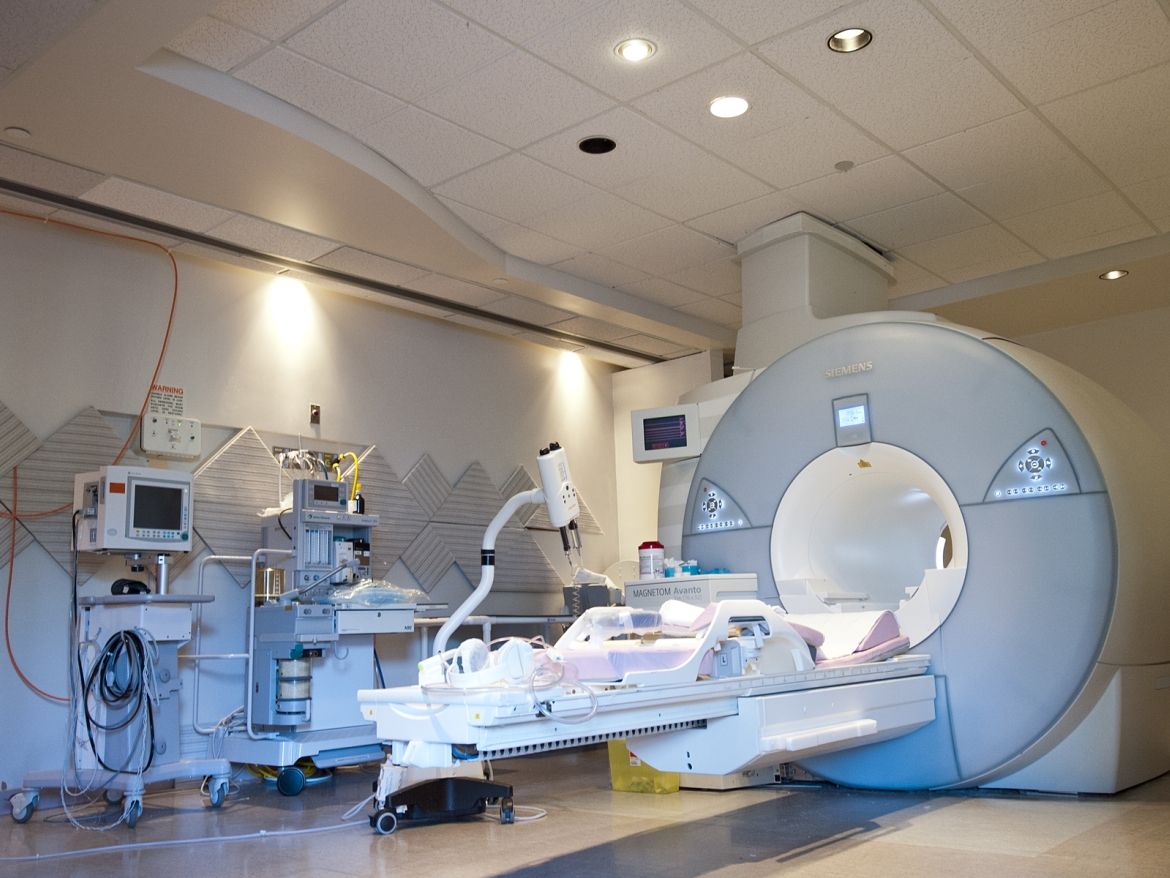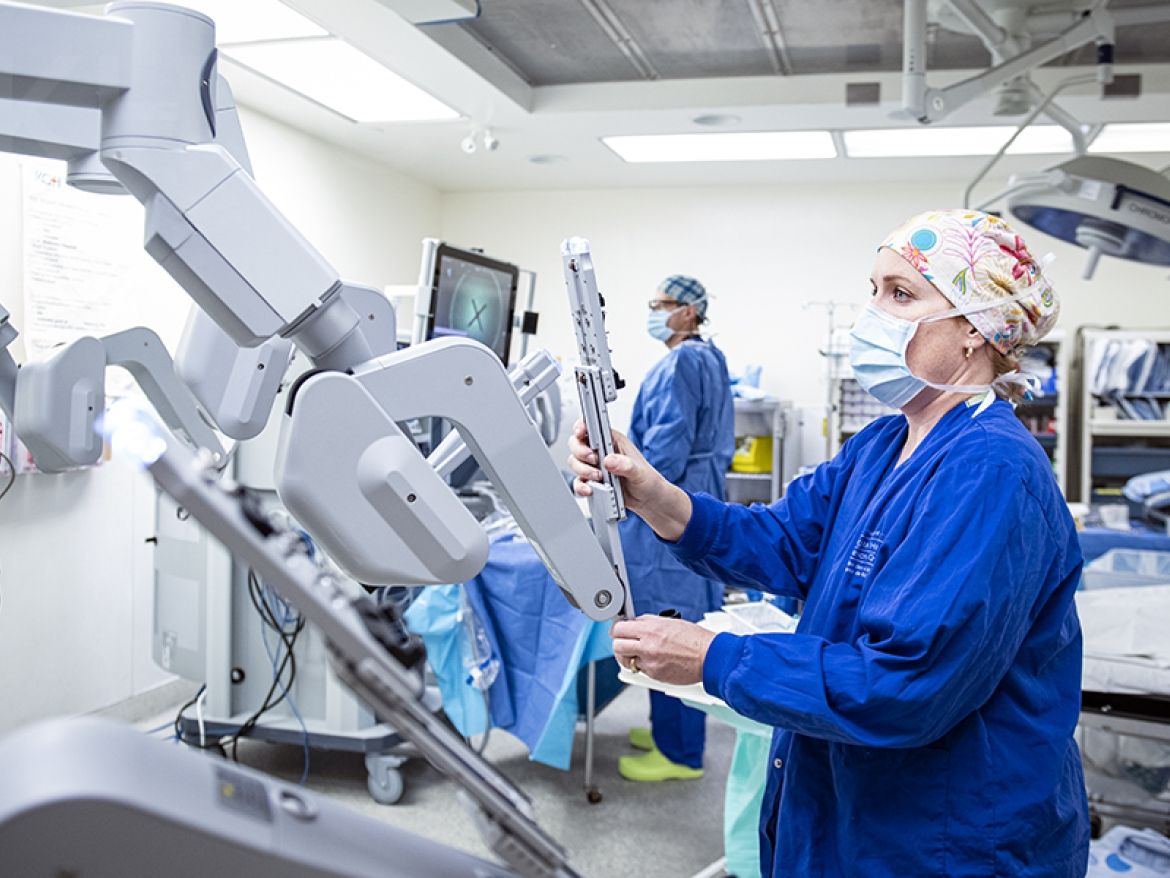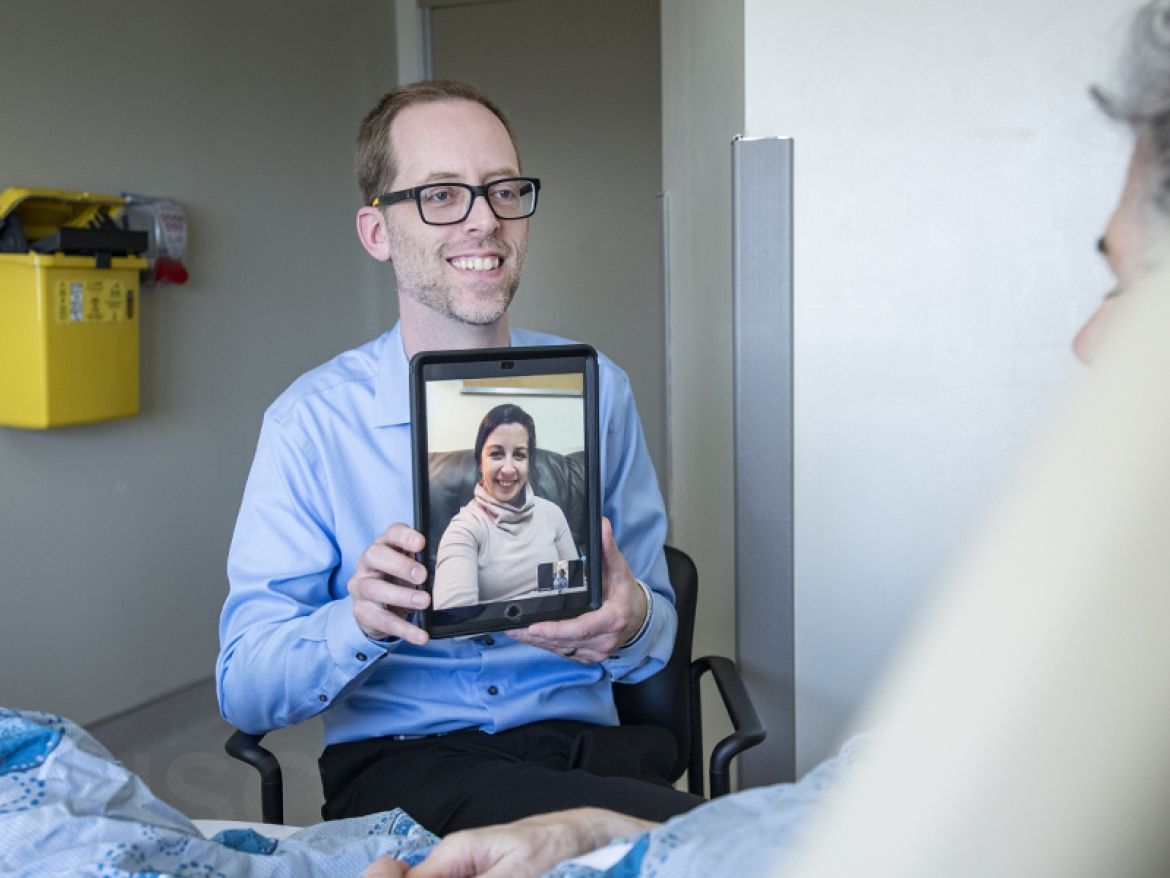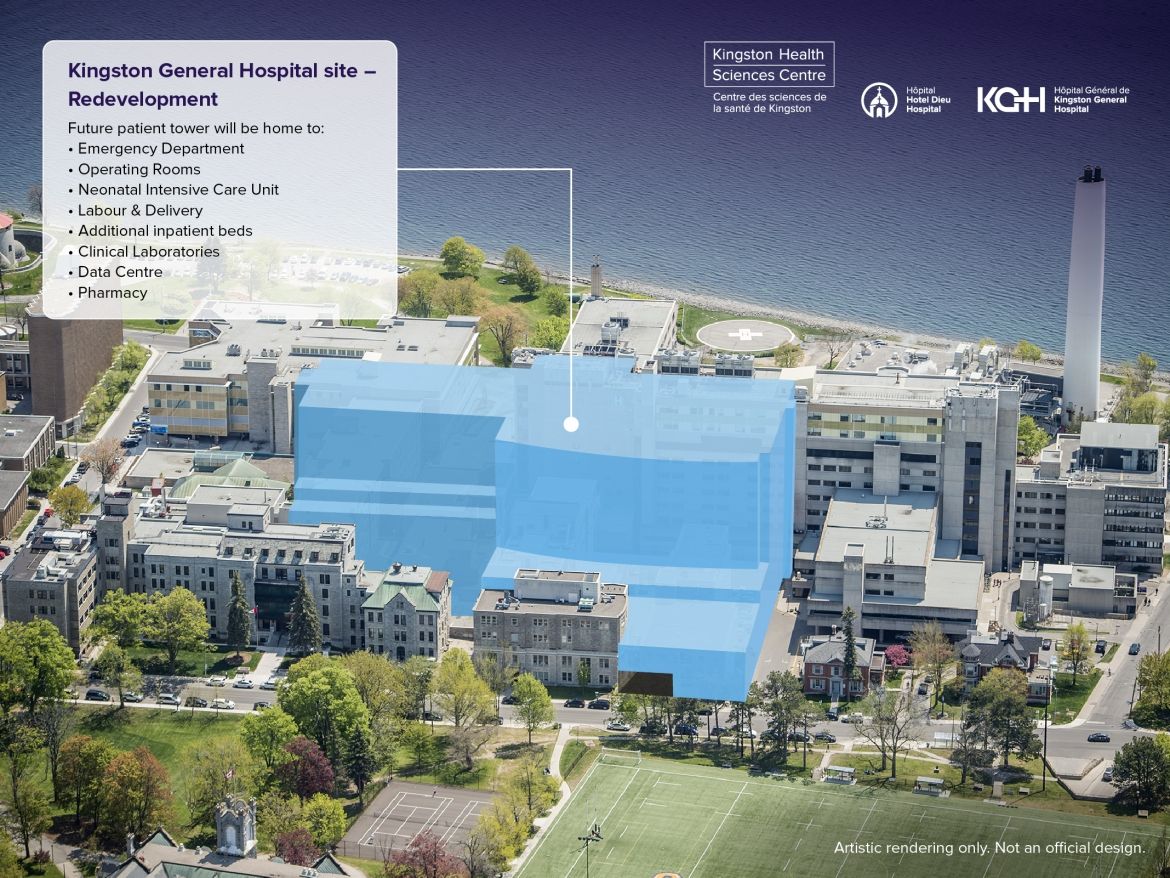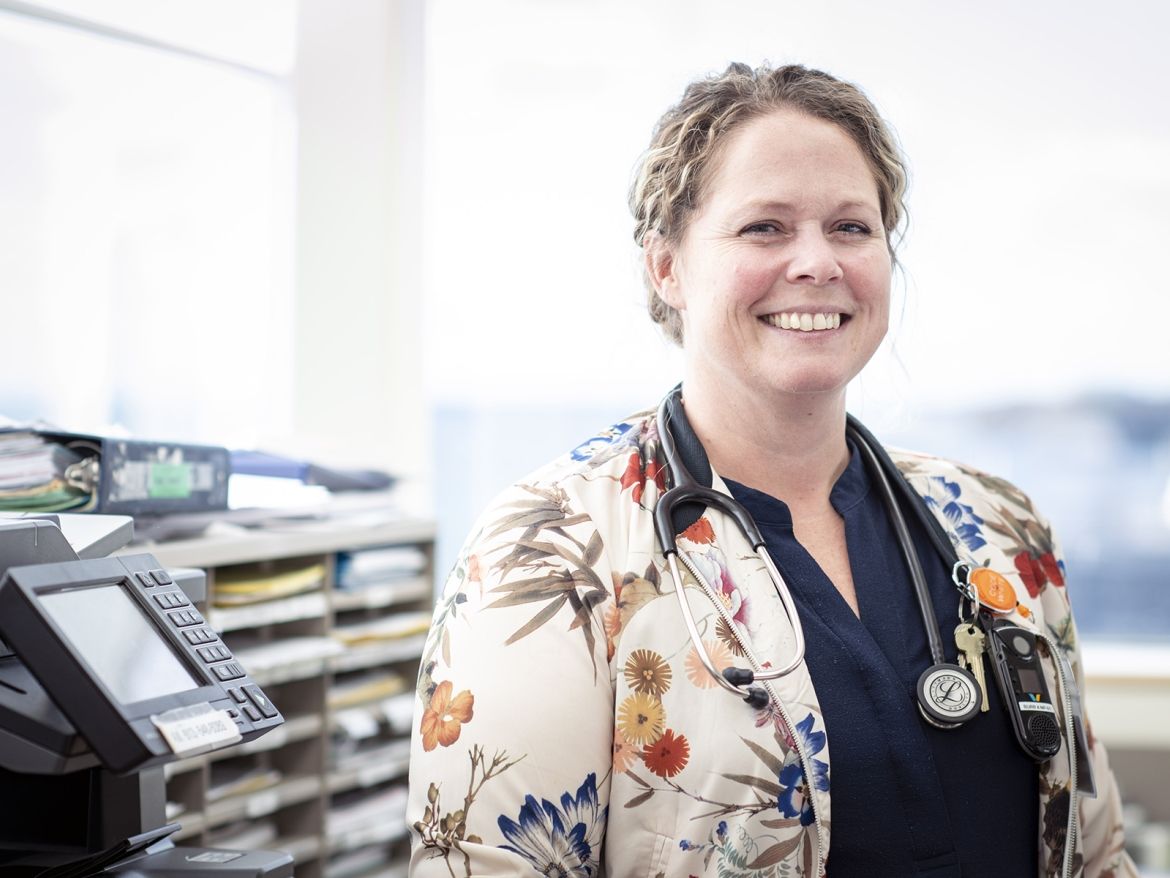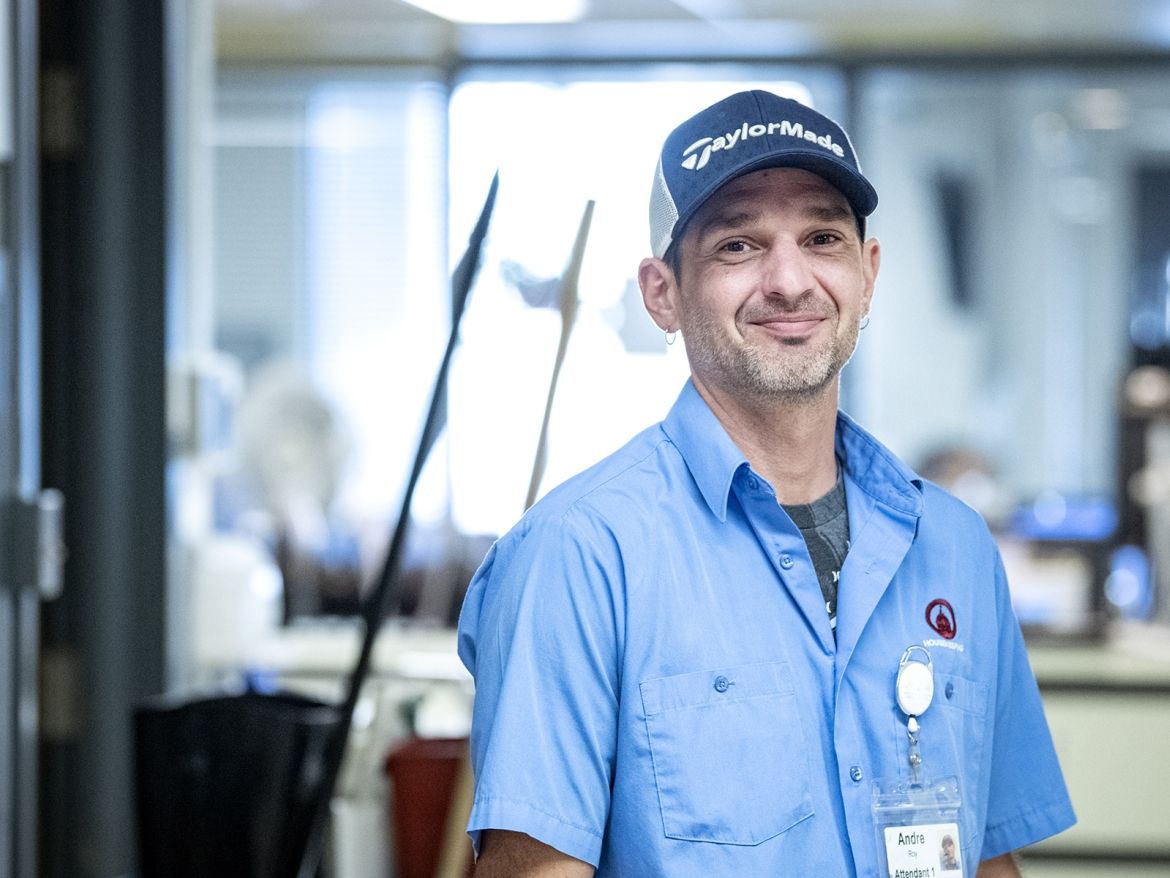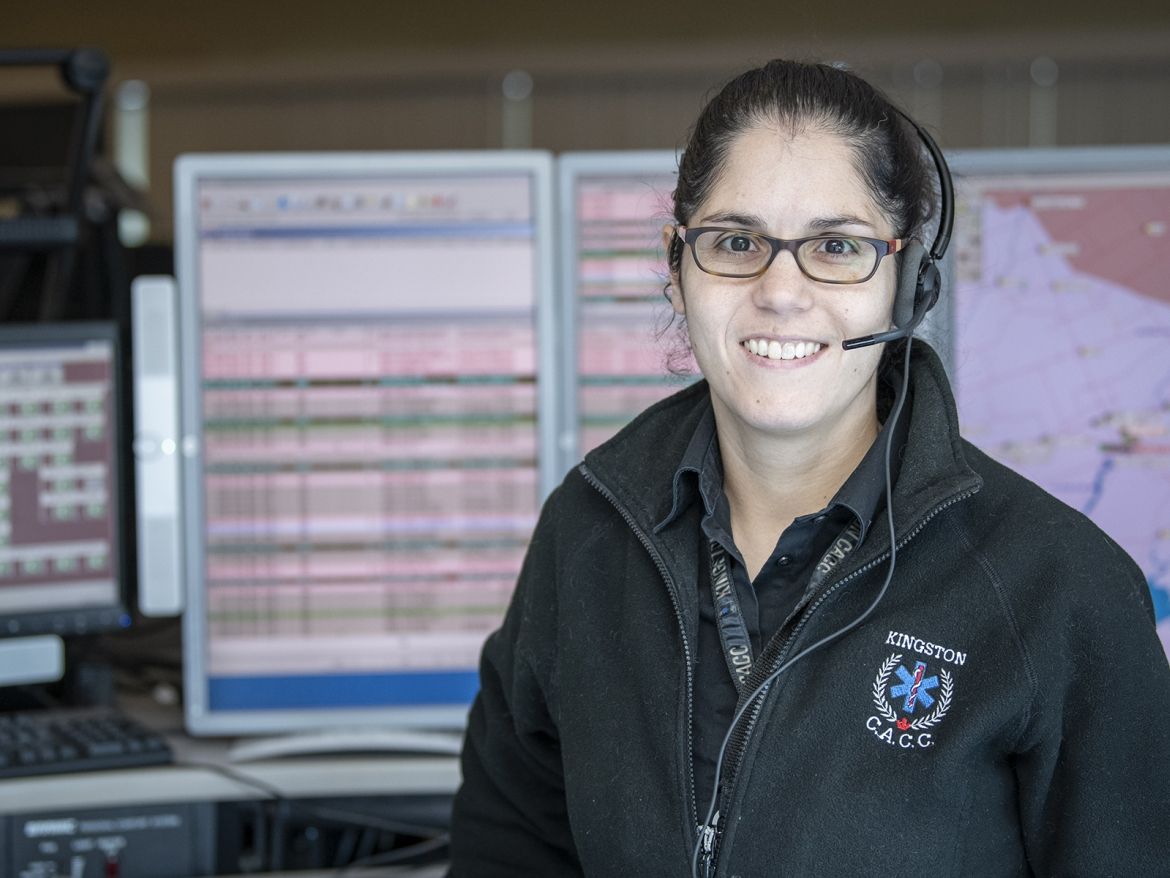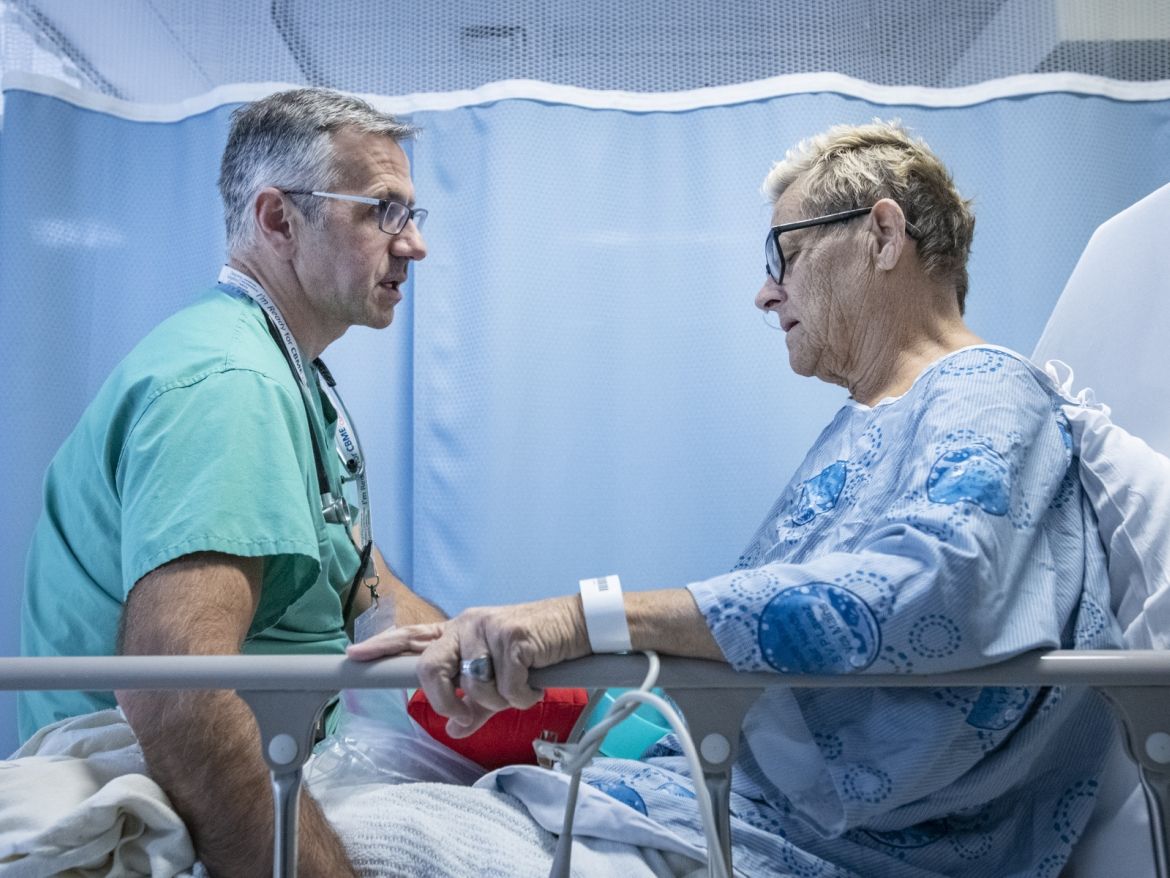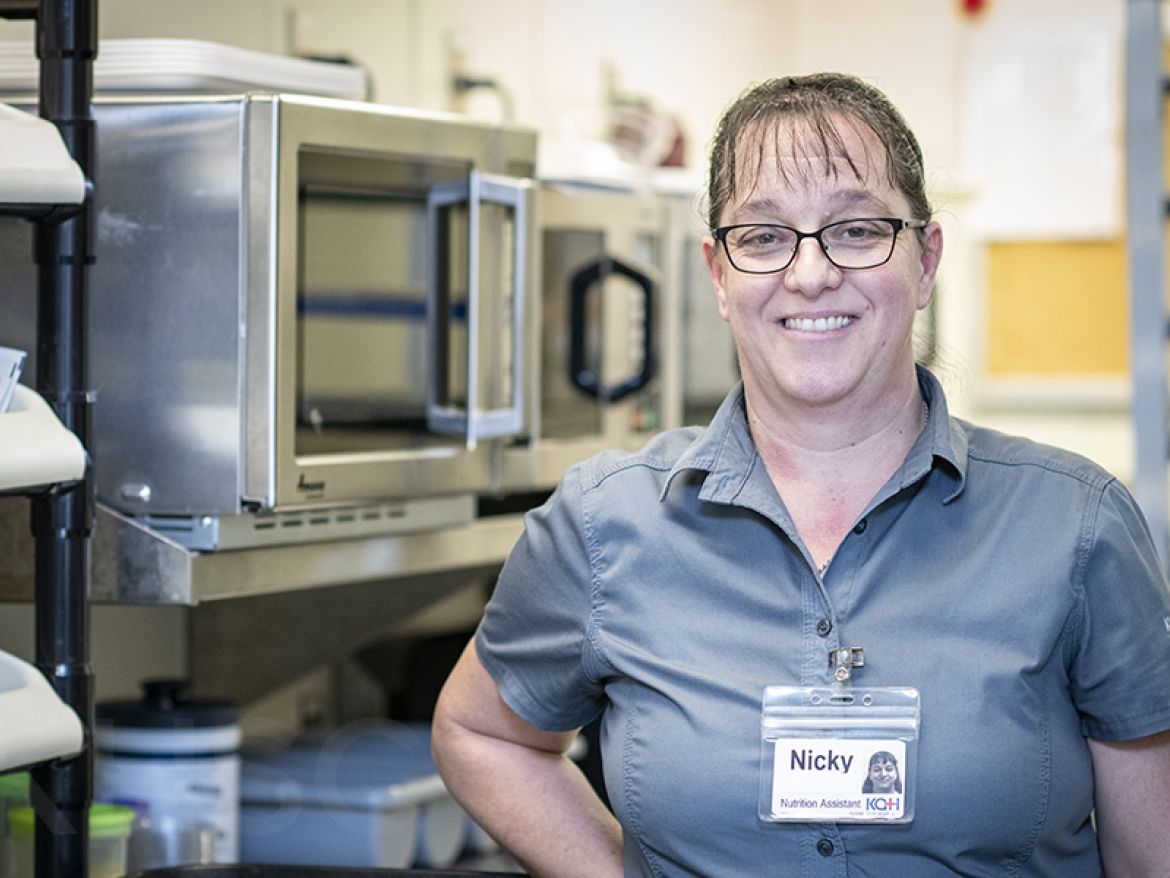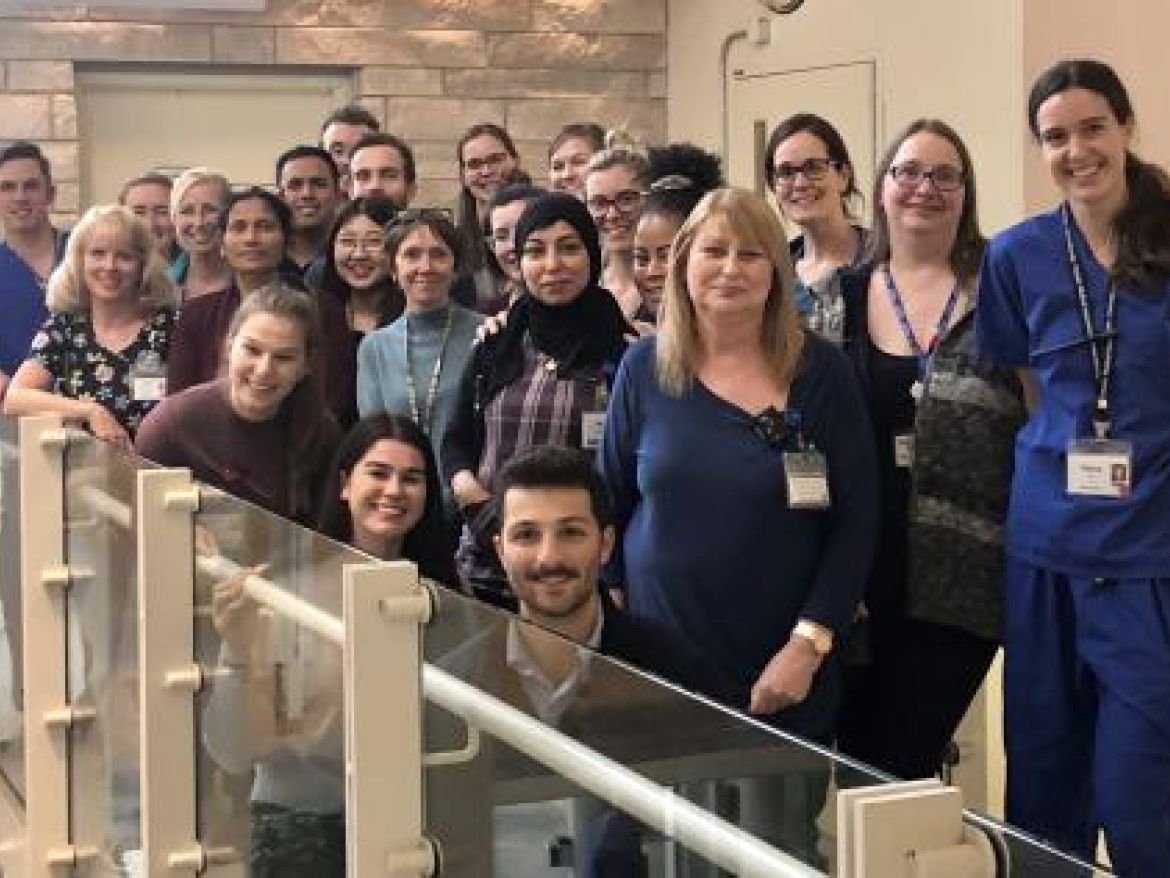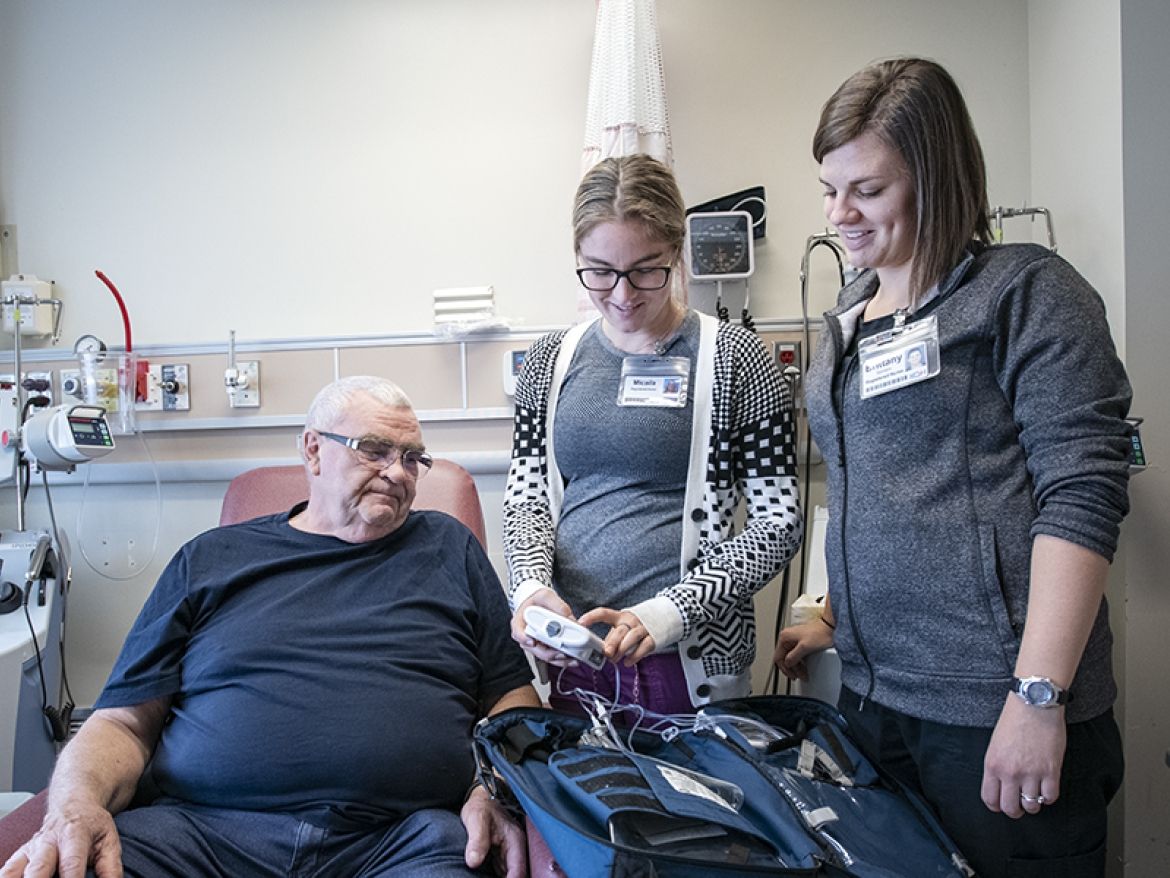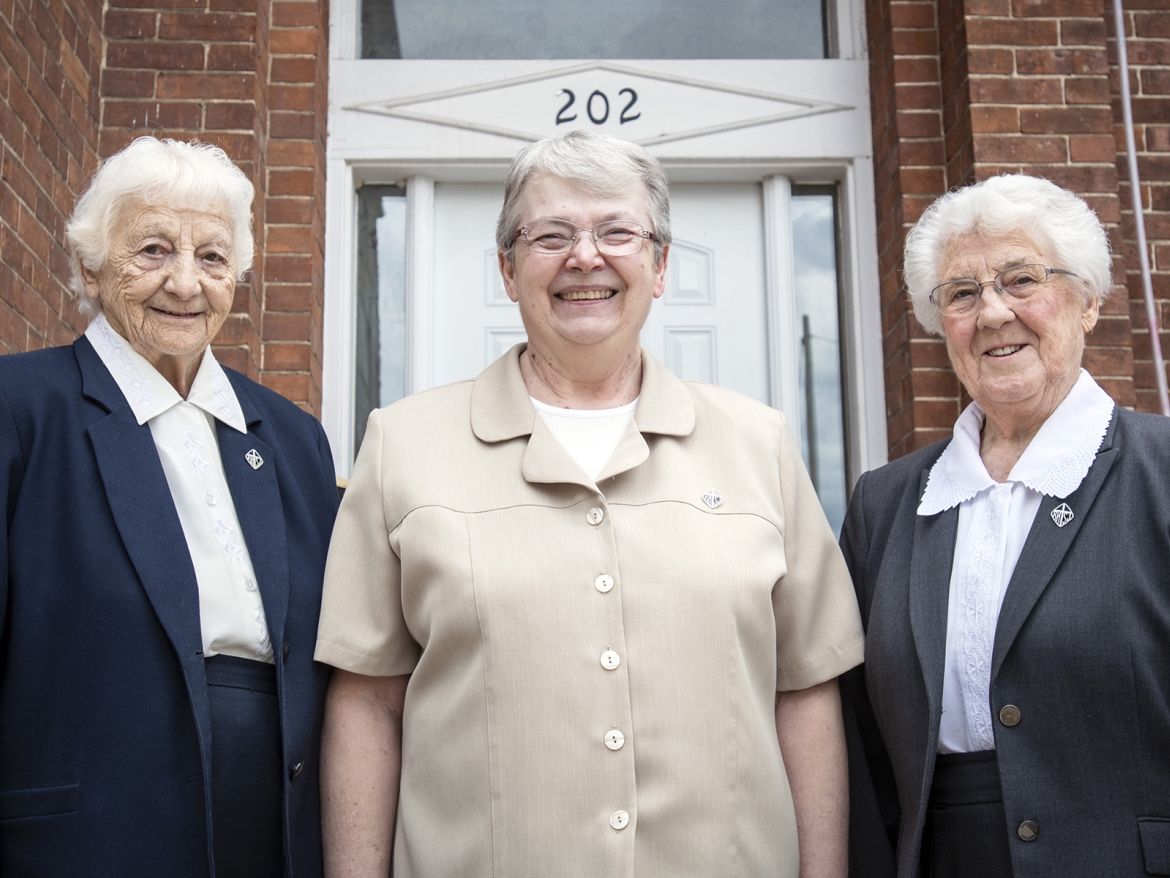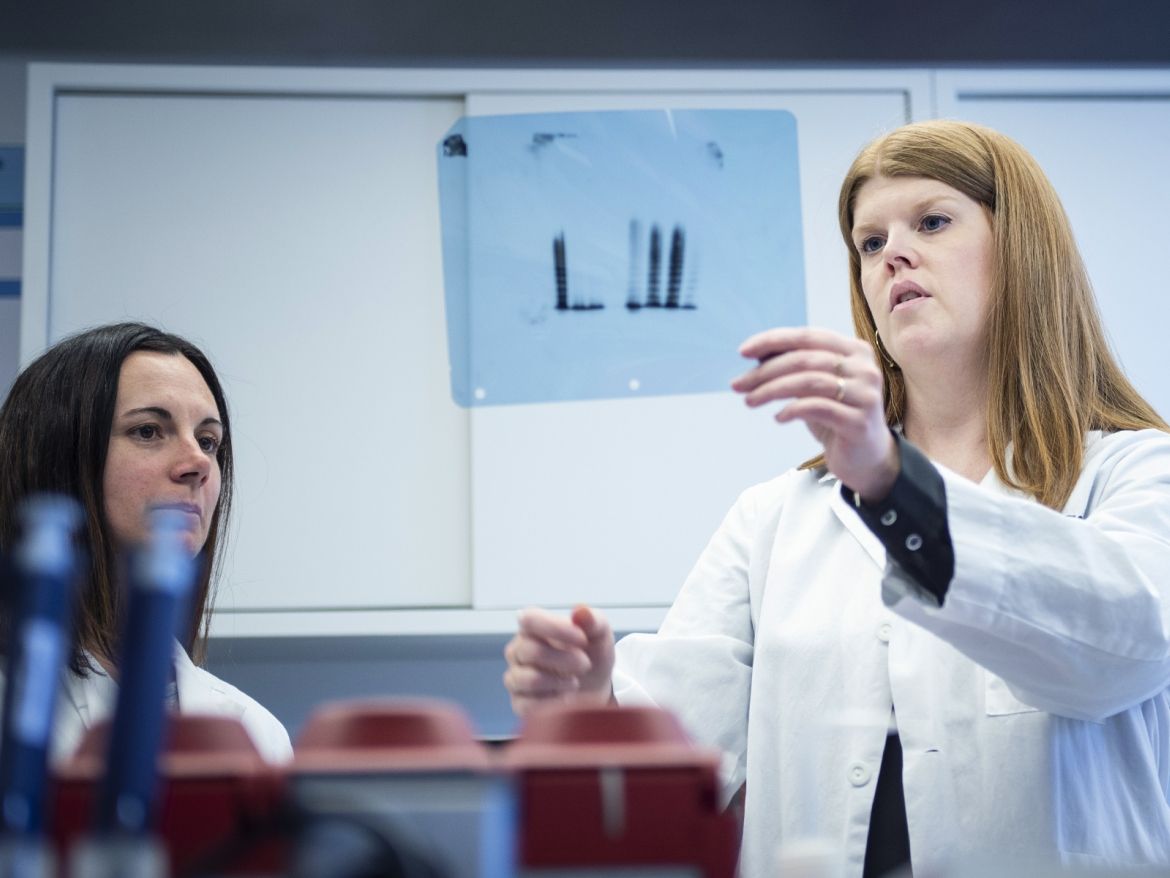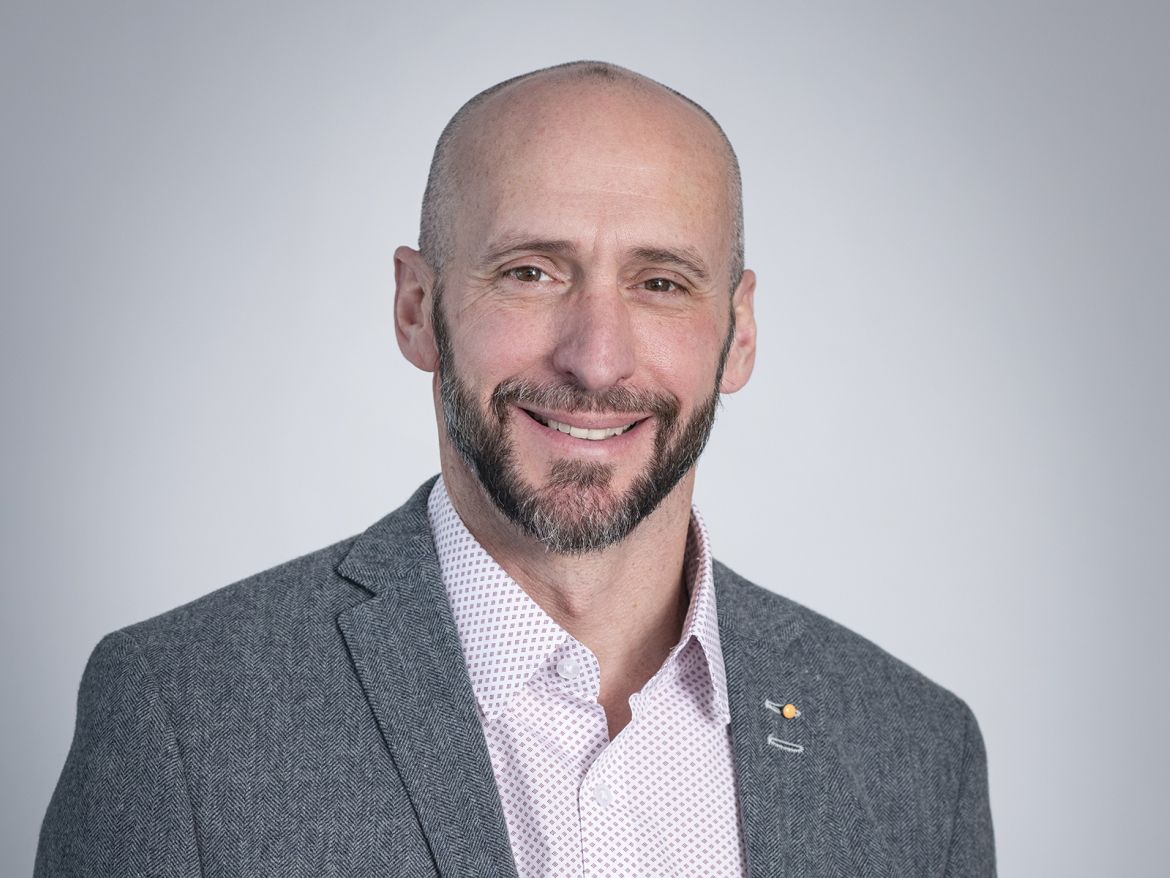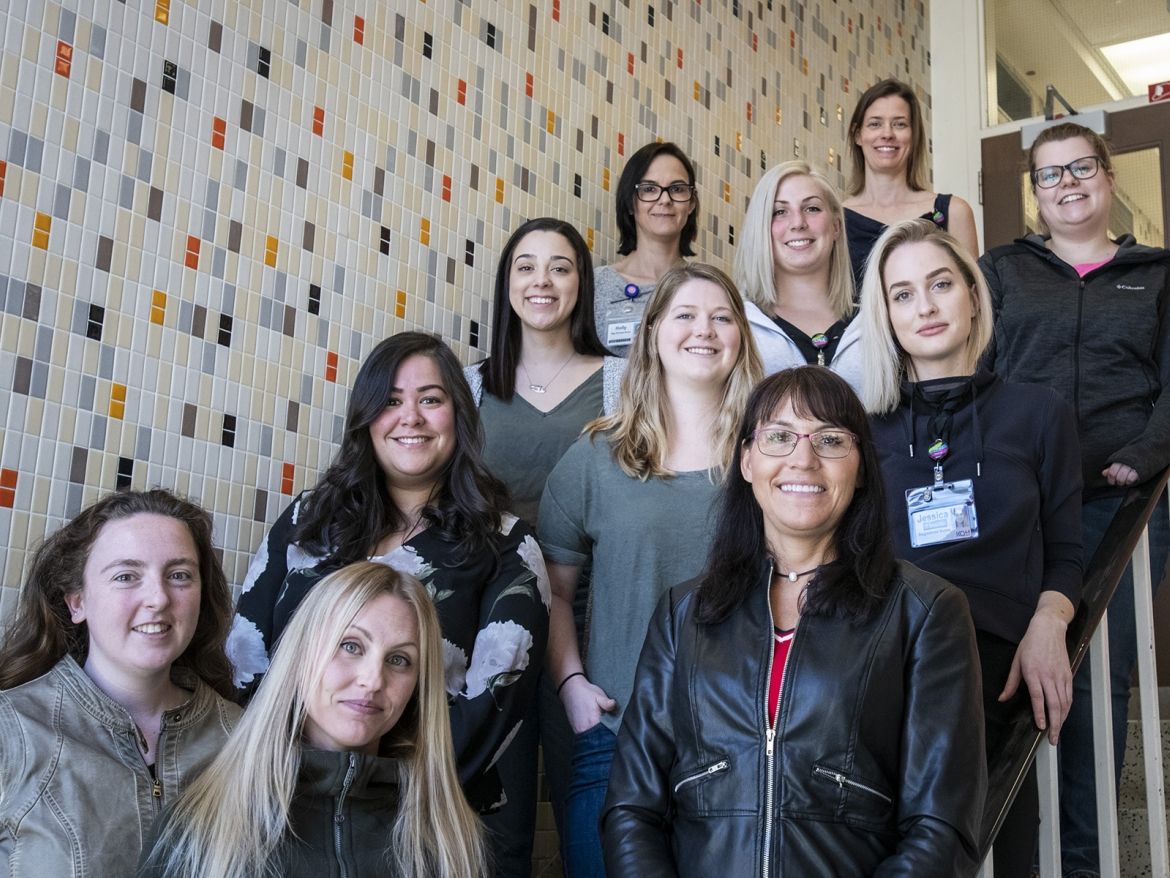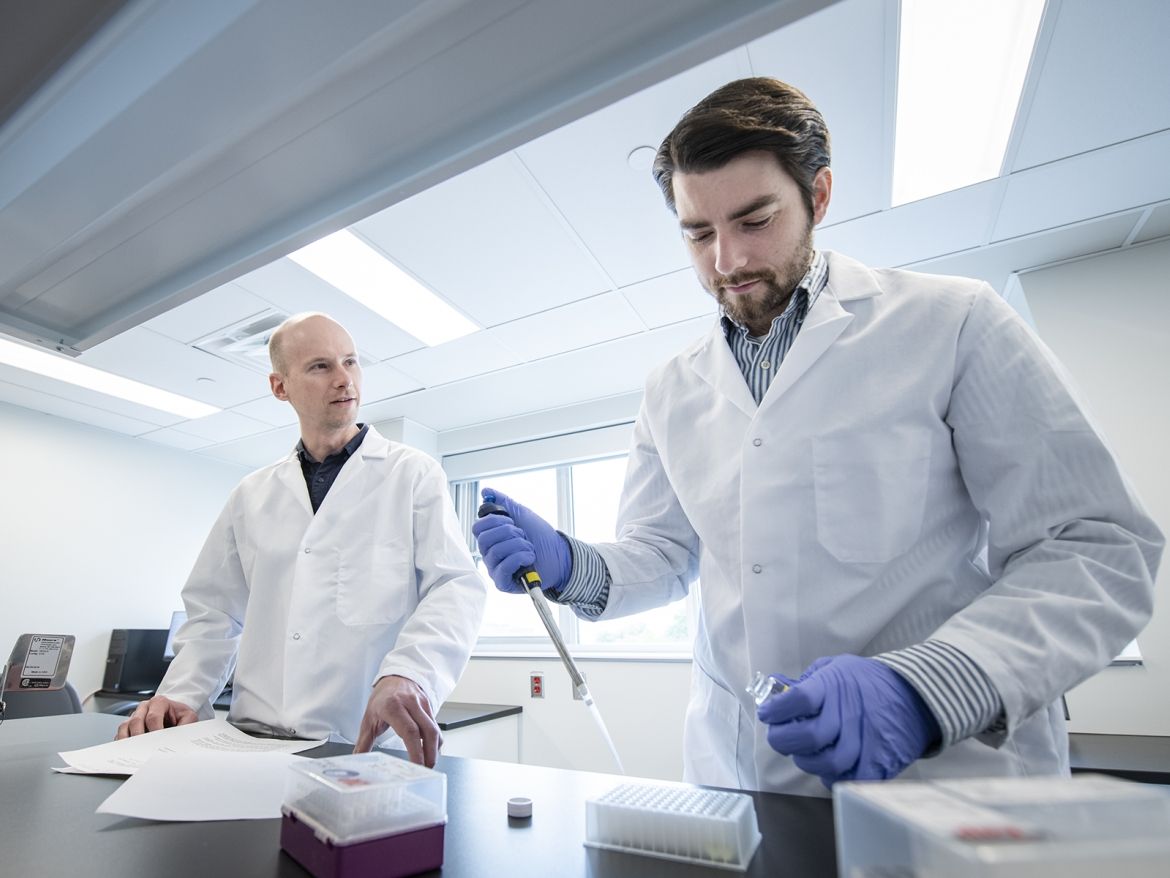It’s no surprise that many of us are focused on providing care during the pandemic. We'd like to remind you all of the other incredible achievements accomplished together in the months leading up to our COVID-19 response. Every year, we publish a new integrated annual corporate plan that identifies the organization’s top priorities and key areas of focus for the year. As we release the next integrated annual corporate plan to guide us through the upcoming year of work, it’s important to pause and reflect on the progress we have made as an organization and prepare for what is ahead.
We have wrapped up the second year of our strategic plan, Transforming Care, Together, the road map to navigate our rapidly changing world which keeps us focused on creating a system built on quality, innovation and partnership. Our goals in 2019/20 were simple in nature, but created enormous impact on our work: ensure quality in every patient experience; nurture our passion for caring, leading and learning; improve the health of our communities; and position KHSC as a leader in research and education. As you read through this report, you will see many stories of the people of KHSC bringing these goals to life.
During this progression through our own organizational strategy, we have also played a role in the transformation of our healthcare system at a regional level. Together with our partners in primary care, public health, social services and more, we have been honing in on a vision to provide better care to the people in our region as an Ontario Health Team.
Of course, as our fiscal year drew to a close, every single team in our hospitals was uprooted and had to rapidly adapt to responding to the demands of the COVID-19 pandemic. We quickly responded to Ontario Health direction to create additional inpatient and critical care capacity. Our sites were transformed to support a COVID-safe environment for patients and staff. While some of our services had to be delayed or suspended, other teams quickly adapted to build new models of care virtually. Across the board we were ready.
Our mission at KHSC is to care for our patients, families and each other through every day actions, significant moments and exciting breakthroughs. We are immensely proud of the KHSC community for the work they have done to bring this mission to life, and we express gratitude for and confidence in our teams as we look to our journey ahead.
Dr. David Pichora
CEO, Kingston Health Sciences Centre
David O'Toole
Chair of the Board of Directors, Kingston Health Sciences Centre
Ensuring quality in every patient experience
We aim to create a quality patient experience where excellence is embedded in everything we do by focusing on quality in our work, ensuring smooth transitions in care for patients and families in our region, leading the evolution of patient engagement, and creating spaces for better care. Here are some of the ways we did this in 2019-20.
Nurturing our passion for caring, leading and learning
In 2019 we launched People of KHSC, a series of stories that profile the dedication and compassion of the people who work, learn and volunteer with us. These people are the ones who bring our mission of caring for patients, families and each other through everyday actions, significant moments and exciting breakthroughs. The profiles below are just a few of many – visit our Instagram page to learn more about the people of KHSC.
Improving the health of our communities through partnership and innovation
We want to provide care that best meets every patient’s needs no matter where they are in our region or what their unique challenges may be. By working more closely with our health and social service partners we can make sure patients get the right care where and when it’s needed most. This means placing our experts and services in the community and actively involving community partners as members of our care teams. Here is how we did this in 2019-20:
Launch KHSC as a leading centre for research and education
Learning doesn’t end when a graduate crosses the stage – it’s an ongoing practice that we embrace and foster at KHSC among our students, residents, staff and leaders. By promoting this culture we are positioning our facility as the ideal place to work, learn and discover, making us better suited to recruit the best health care candidates from across the country.
To learn more about our performance over the past year, you can also click on the following links to check out our latest Strategy Performance and Quality Improvement Plan reports, and our audited financial statements.
Long Image Text
<p>Following months of work at the Kingston General Hospital site, construction for a second MRI scanner was completed. At any one time in our region, 850 to 1,000 people are waiting to be booked for a hospital MRI. The installation of a second MRI will shorten wait times for patients waiting for complex MRI studies that are required for diagnosis and treatment planning.</p>
Long Image Text
<p>Since its launch, the A. Britton Smith QC Robotics program at KHSC has changed the lives of more than one hundred patients who require surgery for certain types of prostate, rectal, gynecological and general surgeries. This year, the program was expanded to offer minimally invasive cardiac bypass surgeries for patients of southeastern Ontario.</p>
Long Image Text
<p>Virtual visits have been ramping up quickly at Kingston Health Sciences Centre as a way of helping patients and families stay connected during the COVID-19 outbreak. “We’ve all been witnessing some profound moments in people’s lives,” says SHP Janeta Kobes, one of the Spiritual Health Practitioners who facilitates virtual visits between patients and families. “It’s a privilege to facilitate and experience this kind of connection.”</p>
Long Image Text
<p>After months of waiting, the Ministry of Health approved the functional program for redevelopment at KHSC’s KGH site in winter of 2019, and, it will be a larger, more expansive project than originally proposed. To meet current needs and prepare for future patient growth, four additional floors will be added to the scope of the new tower.</p>
Default Title for Slide
Default Title for Slide
Default Title for Slide
Default Title for Slide
Long Image Text
<p>Janet Obre is the nurse practitioner in our Mental Health and Addiction Program, a role established in August 2019. In addition to delivering direct patient care for a person’s total health, not just their most pressing symptoms, Janet guides and advocates on behalf of members of the care team so that everyone has the knowledge needed to deliver the best care possible.</p> <p>“Traumatic events in childhood can change the brain in ways that affect our future health, including our mental health. That’s why a holistic approach to mental health and addiction care is so important, and why I really appreciate my team — they care for the whole person and take into account people’s life experiences.” </p>
Long Image Text
<p>Andre Roy is exactly the kind of person you want cleaning a hospital - he never stands still and you never see him without a cleaning cloth in hand. According to his co-workers, he can’t pass anything without taking a sponge or cloth to it. Over 19 years he has logged thousands of hallway miles at our HDH site, mostly as a “rover” Housekeeper who set up, tidied up and scrubbed up wherever he was needed.<br /> <br /> A self-admitted clean freak at home, too, Andre says his non-stop Mr. Clean approach is motivated by one belief, especially during flu season: “People are already coming in here sick with something. They don’t want to leave with something else.”</p>
Long Image Text
<p>First responders are quick to use the 10-4 code during emergencies but too often go silent when they desperately need help themselves. Maria Constandinou, an ambulance dispatcher with Kingston Central Ambulance Communications Centre, wrote the song “10-4” to help fellow first responders cope. <br /> <br /> “It’s the job of first responders to be in charge and to tell others how to act in an emergency,” says Maria. “They find it really hard to step back from that role when they’re feeling vulnerable themselves...that’s where talking and sharing with peers come in.”</p>
Long Image Text
<p>Dr. Damon Dagnone comes from a family where both his parents trained and worked in Emergency Departments and growing up he saw first-hand the impact that caring for people, both through medicine and connection, could make.</p> <p>“Many people might think it’s the lights, drama, things you see on TV that make working in Emergency Medicine exciting, but it’s really the interactions that we have with our patients and families that are most meaningful and purposeful in this work. It is a real privilege to be with families in their moments of illness and to help add comfort, not just through the medical care necessarily, but by being there for them, hearing their stories and building a connection.”</p>
Long Image Text
<p>What’s one of the best ways to show someone you care? Bringing them food, of course. Nicky Cordeiro, a Nutrition Assistant of 15 years at KHSC, contributes to delivering over 1,400 meals per day to inpatients at the KGH site. Her daily schedule is jam-packed with taking patients’ food orders, assembling and delivering trays, dish room duties, and then doing it all over again for the next meal. Nicky and her colleagues play an essential role in the well-being and recovery of patients staying at KHSC. <br /> <br /> “To me, the easier their stay is, the sooner they get healthy, and the faster they get to go home,” says Nicky. “If I can help someone get home, that’s a really good thing.”</p>
Default Title for Slide
Default Title for Slide
Default Title for Slide
Default Title for Slide
Default Title for Slide
Long Image Text
<p>For the fifth year in a row, the Cancer Centre of Southeastern Ontario helped hundreds of individuals who do not have access to a family doctor get screened for cervical cancer. This work was done through the annual Pap Party campaign which saw travelling clinics pop up across southeastern Ontario.</p>
Long Image Text
<p>Traditionally, patients receiving high-dose methorexate (HD MTX) treatment have to stay in the hospital for several days, with only a few hours of every day being spent on receiving the treatment itself. Through an innovative outpatient model designed by a working group at the Cancer Centre of Southeastern Ontario, patients now have daily hospital visits lasting a few hours and receive the rest of their treatment from the comfort of their own home. </p> <p> </p>
Long Image Text
<p>After living a stone’s throw from their beloved Hotel Dieu Hospital for so many years, a small but mighty group of Religious Hospitallers of Saint Joseph (RHSJ) Sisters have relocated to a new home, yet still remain a strong and visible presence at our HDH site where they carry out their mission of caring for the mind body and spirit. This mission translates into programs that serve Indigenous peoples, persons struggling with substance abuse and people seeking shelter, food and clothing. </p> <p> </p>
Long Image Text
<p>In March 2020, teams across our sites quickly pivoted their focus to respond to the COVID-19 pandemic. One of the first orders of business was to transform an empty clinic space at the HDH site into the city’s first COVID-19 Assessment Centre, which has since been relocated to the community and continues to be staffed by KHSC experts. </p>
Default Title for Slide
Default Title for Slide
Default Title for Slide
Default Title for Slide
Long Image Text
<p>KHSC was named one of Canada’s Top 40 research hospitals by <em>Re$earch Infosource, </em>standing out for having the highest number of researchers among the Canadian hospitals in it's category. Our unique environment of hospital clinicians and academic scientists continue to seek faster and less invasive approaches to diagnosing and treating heart disease and brain injury, enabling more precise cancer surgery, and creating new understanding of bone and joint injuries. </p>
Long Image Text
<p>Early in 2020, Dr. Steven Smith was appointed as Vice President, Health Sciences Research, and President and CEO of the Kingston General Hospital Research Institute, Dr. Smith looks forward to accelerating the integrated health research continuum by maximizing research successes, intensifying collaborative interdisciplinary programs, and fostering innovative industry and patient-oriented opportunities.</p>
Long Image Text
<p>In partnership with with Algonquin College, complete OR Perioperative Nursing certification is now available on-site at KHSC to existing nursing staff. Before this, only coursework could be completed on-site, and trainees had to go to Algonquin in Ottawa or George Brown College in Toronto to complete their practical lab work. Over the long-term, it is anticipated that this new effort to train more OR nurses will have positive effects on the wait times our patients experience for surgery.</p>
Long Image Text
<p>Mass spectrometry equipment has transformed the Gastrointestinal Diseases Research Unit (GIDRU) lab into a state-of-the-art metabolomics facility, allowing researchers to study the vast variety of “metabolites” (tiny molecules) that are produced by our bodies and the bacteria living in our gut. The new system will enable Dr. Bennet and research associate Dr. Martin Kaufmann to create detailed chemical “fingerprints” of individual metabolites in patients with bowel disorders. “The beauty of it is we can measure the levels of over 100 of these small molecules at once,” says Dr. Kaufmann. “It will give us insight into the complex pathways of IBS and other disorders, which are still a ‘black box’ for us.”</p>
Default Title for Slide
Default Title for Slide
Default Title for Slide
Default Title for Slide
Let's pause and reflect on the success of the year behind us, while planning for our upcoming year of providing care during a pandemic.

